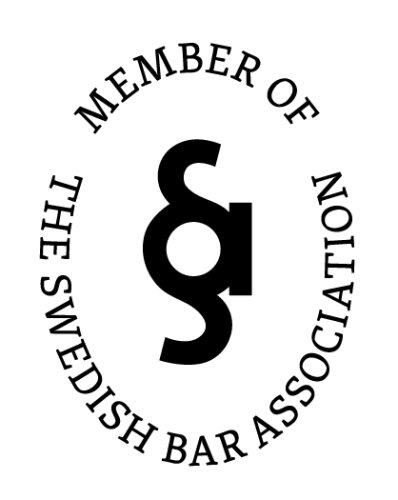Best Energy Regulatory Law Lawyers in Sweden
Share your needs with us, get contacted by law firms.
Free. Takes 2 min.
Or refine your search by selecting a city:
List of the best lawyers in Sweden
About Energy Regulatory Law in Sweden
Energy Regulatory Law in Sweden covers the legal framework that governs the generation, transmission, distribution, and consumption of energy within the country. Swedish energy regulation is guided by both national law and European Union directives, emphasizing secure energy supply, sustainability, competition, and consumer protection. The law covers traditional sectors such as electricity, natural gas, and district heating, as well as newer areas like renewable energy integration and energy efficiency improvements. Regulatory agencies supervise energy companies, ensuring compliance with policy, fair pricing, market competition, and environmental standards.
Why You May Need a Lawyer
People and businesses may require legal assistance with Energy Regulatory Law in Sweden for a variety of reasons. These include navigating complex licensing processes for energy production or supply, understanding compliance obligations for renewable energy projects, resolving disputes regarding network access or tariffs, or dealing with accusations of regulatory non-compliance. Additionally, legal support can be critical when participating in government tender processes, negotiating energy contracts, challenging regulatory decisions, or handling environmental impact assessments linked to energy operations. Individuals facing issues as energy consumers, such as billing disputes or complaints about service quality, may also benefit from professional legal advice.
Local Laws Overview
Swedish energy regulation is primarily based on the Electricity Act, the Natural Gas Act, and the District Heating Act. The Swedish Energy Markets Inspectorate (Ei) is the main authority overseeing energy markets and enforcing these laws. Key aspects include:
- Licensing requirements for electricity production and distribution
- Rules for grid access and network charges to ensure fair competition and security of supply
- Support schemes for renewable energy, such as green certificates and subsidies
- Obligations around energy efficiency for large users and energy companies
- Consumer rights, including protections for fair billing, transparent information, and easy switching of suppliers
- Measures for environmental protection and climate targets under Swedish and EU law
- Procedures for appealing regulatory decisions
Energy companies are subject to close scrutiny regarding pricing, market behavior, and environmental impact. Sweden actively integrates renewable resources and encourages innovation while striving to maintain competitive, reliable, and sustainable energy markets.
Frequently Asked Questions
What is the main authority for energy regulation in Sweden?
The Swedish Energy Markets Inspectorate (Energimarknadsinspektionen, Ei) is the primary regulatory authority responsible for supervising the electricity, natural gas, and district heating markets.
What laws govern energy production in Sweden?
The main laws are the Electricity Act, the Natural Gas Act, and the District Heating Act. Additional regulations may apply depending on the type of energy, environmental considerations, and EU directives.
Do I need a license to produce or distribute electricity in Sweden?
Yes, most forms of commercial electricity production and distribution require a license from the Energy Markets Inspectorate. Small-scale production may be exempt from some requirements.
What are my rights as an energy consumer in Sweden?
Consumers have the right to fair, transparent billing, to easy supplier switching, to information about their consumption, and to file complaints about service or pricing.
Are there incentives for renewable energy in Sweden?
Yes, Sweden has support schemes such as green certificates, feed-in tariffs, and subsidies to encourage renewable energy production and integration.
How are energy prices regulated?
While generation prices are generally market-based, network charges are regulated to prevent abuse by grid operators. The Energy Markets Inspectorate monitors these charges to ensure fairness and transparency.
What should I do if I have a dispute with my energy supplier?
Start by contacting your supplier to resolve the issue. If unresolved, you can escalate the complaint to the National Board for Consumer Disputes (ARN) or seek legal advice for further action.
How does Sweden regulate energy efficiency?
Sweden mandates energy efficiency measures for both producers and large consumers. There are obligations to perform energy audits, implement savings, and report on progress according to national and EU goals.
What environmental regulations apply to energy projects?
Energy projects must often undergo environmental assessments under Swedish and EU law. Compliance with emission targets and permitting for renewables, nuclear energy, and fossil fuels is strictly enforced.
Can foreign companies operate in the Swedish energy market?
Yes, foreign companies can invest in and operate within Sweden’s energy market, but must comply with national licensing, regulatory, and environmental requirements.
Additional Resources
Here are some key resources for individuals and businesses seeking more information or assistance with Energy Regulatory Law in Sweden:
- Swedish Energy Markets Inspectorate (Energimarknadsinspektionen, Ei)
- Swedish Energy Agency (Energimyndigheten)
- National Board for Consumer Disputes (Allmänna reklamationsnämnden, ARN)
- Energy Companies Sweden (Energiföretagen Sverige)
- Swedish Environmental Protection Agency (Naturvårdsverket)
- Chamber of Commerce and Industry of Sweden
- General legal advice centers and law firms specializing in energy law
Next Steps
If you require legal assistance with Energy Regulatory Law in Sweden, consider the following steps:
- Clearly define your issue or question related to energy law
- Collect any relevant documentation, such as contracts, licenses, or correspondence with regulatory authorities
- Contact a lawyer or law firm specializing in energy regulatory matters for an initial consultation
- Check if initial advice is available from consumer organizations or governmental advisory services
- Prepare your questions in advance to make the most of your consultation
- Consider reaching out to relevant regulatory bodies directly for official guidance or dispute resolution
Acting early and seeking professional advice can help you navigate complex regulatory requirements and avoid costly legal complications in the energy sector.
Lawzana helps you find the best lawyers and law firms in Sweden through a curated and pre-screened list of qualified legal professionals. Our platform offers rankings and detailed profiles of attorneys and law firms, allowing you to compare based on practice areas, including Energy Regulatory Law, experience, and client feedback.
Each profile includes a description of the firm's areas of practice, client reviews, team members and partners, year of establishment, spoken languages, office locations, contact information, social media presence, and any published articles or resources. Most firms on our platform speak English and are experienced in both local and international legal matters.
Get a quote from top-rated law firms in Sweden — quickly, securely, and without unnecessary hassle.
Disclaimer:
The information provided on this page is for general informational purposes only and does not constitute legal advice. While we strive to ensure the accuracy and relevance of the content, legal information may change over time, and interpretations of the law can vary. You should always consult with a qualified legal professional for advice specific to your situation.
We disclaim all liability for actions taken or not taken based on the content of this page. If you believe any information is incorrect or outdated, please contact us, and we will review and update it where appropriate.
Browse energy regulatory law law firms by city in Sweden
Refine your search by selecting a city.















